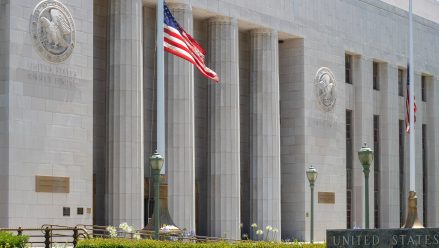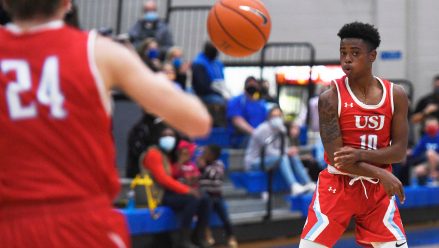The One Big Beautiful Bill Act is now law, and with it comes the worst gambling tax provision ever created by mankind. Starting in 2026, gamblers will only be able to deduct 90% of their losses against their winnings — a change from the current 100% deduction.
This change is dramatic, drastic, and has pro gamblers — from sports bettors to poker players to everyone in-between — scrambling for solutions.
Rep. Dina Titus (D-Nevada) has already introduced the FAIR BET Act to restore the 100% deduction, but unless that legislative fix gains traction, gamblers are left wondering: What now?
The answer, according to tax professionals, largely comes down to one word: session.
Session or bust
For professionals facing what amounts to a nuclear threat, the concept of “session accounting” has emerged as the primary, albeit unclear, lifeline. The strategy involves treating gambling activities as a block rather than as individual wagers, reducing the gross amounts of winnings and losses that must be reported.
“The key for anyone is going to be good record-keeping and keeping a session log,” said Russell Fox, a Nevada-based tax professional who specializes in gambling. Fox pointed to the Park v. Commissioner case, written by now-Supreme Court Justice Brett Kavanaugh when he sat on the D.C. Circuit Court of Appeals, which established legal precedent for session accounting.
According to Las Vegas CPA Zachary Zimbile, if a sports bettor places 1,000 individual wagers in a day with 500 wins totaling $7,000 and 500 losses totaling $6,000, treating each bet separately would require reporting $7,000 in winnings and $6,000 in losses. Under the new 90% rule, only $5,400 in losses could be deducted, leaving the bettor taxed on $1,600 instead of the actual $1,000 profit.
But in session accounting, the only number that matters is the net — in this instance, $1,000.
“If you can take the net results from each book each day, or in total from all of your books for each day, and call that a session, your net result for the day is the only number that you care about reporting,” Zimbile said.
Easy fix? Not so fast. The definition of a “session” for sports betting has yet to be determined.
“In sports betting, there’s no case law on this, and it’s going to be years before there is any,” Fox said.
While he’s heard suggestions that an entire NFL season or PGA tour season could constitute a session, he quickly dismissed the notion.
“That’s not going to work,” he said. “It doesn’t pass the smell test at all.”
Fox believes the IRS will likely define each individual game as a separate session, though bets on the same game — such as betting on both a team and the over — could be grouped together. Arbitrage bets would also likely qualify as a single session.
“The dictionary definition of a session is something with a discrete beginning and end,” Fox said. “Most likely, the IRS is going to say each sporting contest is a session.”
Less money, mo’ problems
The session strategy may provide some relief, but it won’t solve the basic problem facing high-volume, low-margin pros. While most recreational gamblers won’t feel much impact — they typically don’t itemize deductions or operate at the volumes where the 10% loss becomes meaningful — the provision creates scenarios where pros could pay “tax on phantom income, where you have a net loss but still pay tax,” as Robert Stoddard, KPMG lead tax partner, said.
Stoddard, whose firm primarily works with casino operators, noted that while the industry reaction has been “more subdued” on the operator side, there are clear concerns about downstream effects. The fear is that professional gamblers will simply exit the regulated market.
“It could be an investing activity where there might be capital gain and loss treatment,” Stoddard said, referring to the possibility that high-volume bettors might move to prediction markets like Kalshi, which he says are taxed as investments rather than gambling.
For professionals like those Zimbile works with, the 10% loss limitation could be financially devastating.
“For people that have $2 to $10 million of revenue throughout the year, it becomes a large issue,” Zimbile said. “If this actually goes into effect next year and there’s no way to interpret sessions differently, then I don’t see a way where if you’re high volume you can make that work.”
Operator perspective
While casino operators have been relatively quiet about the provision, Stoddard noted that they’re actually quite pleased with other aspects of the bill.
“There’s a lot of wins for a number of businesses,” he said, citing the restoration of full bonus depreciation, more favorable interest deduction rules, and the elimination of requirements to capitalize domestic R&D expenses.
This puts operators in an awkward position. The American Gaming Association praised the overall bill’s passage while simultaneously backing Titus’ FAIR BET Act to reverse the gambling provision.
“There’s not that many professional gamblers, so I think from a congressional perspective this wasn’t viewed as very controversial and they desperately needed a revenue raise for this bill,” Stoddard said.
The immediate focus for many in the industry is on Titus’ bill, which has already gained bipartisan support. Rep. Ro Khanna (D-California) and Rep. Troy Nehls (R-Texas) have signed on as co-sponsors.
Still, the uncertainty has left many professional gamblers in limbo, and for good reason.
“The only certainty I know is people who grind with large dollar amounts and small margins, they’re the ones who are going to go out of business,” Fox said.






